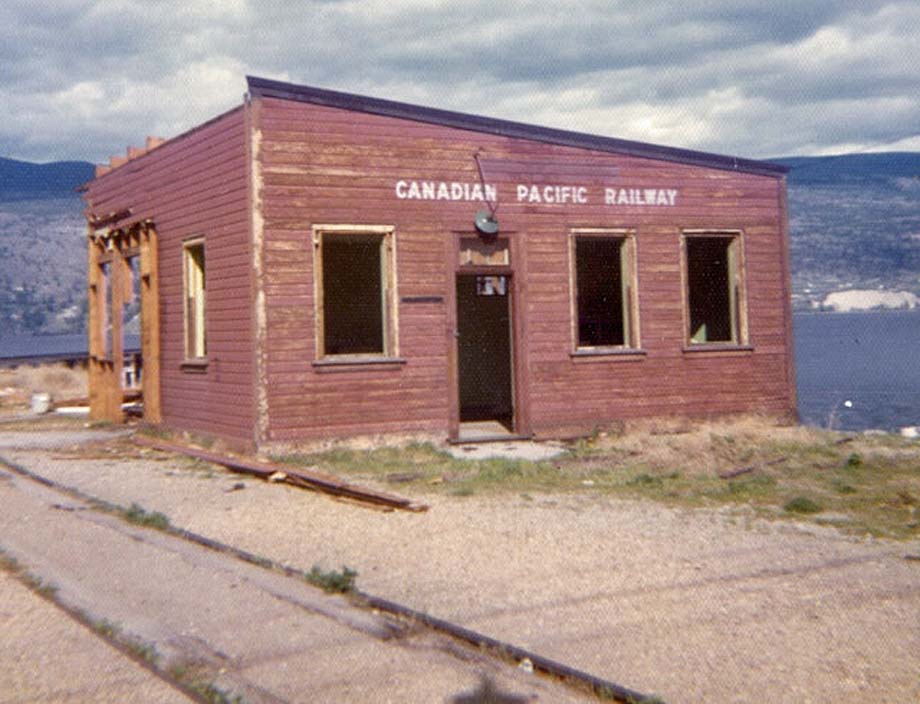
Summerland British Columbia - The Summerland Museum and Archives Society shared a peek back 50
years to April 1974, when the Canadian Pacific Railway wharf in Lowertown was demolished.
The old CPR office was situated at the foot of the wharf and the building is already partially dismantled in the photo,
with the windows, doors, roof, and part of the end wall already missing.
"The demolition of this iconic building marked the end of an era for Lower Summerland," the museum wrote in
its post, adding that the building was looking pretty sad, shortly before being torn down.
The CPR built its wharf in Summerland in June 1910, five years before the first train came into the town on the Kettle
Valley Railway, according to the museum.
The facility included a cold storage facility, plant station, freight shed, and a slip dock with railway cars, along
with a packing house nearby.
"These facilities enabled railway freight cars to be transported to Summerland by boat, where they could be loaded
with goods before being shipped back to Vernon and Kelowna. From there, the freight cars could be connected to the CPR
and the goods would be transported across the country."
At the time, the wharf was a huge benefit to the business of Summerland, allowing access to markets across Canada and
even worldwide.
"The first freight cars were filled with fruit, vegetables, horses, and cattle, but it was the abundant fruit that
Summerland became famous for," the museum added.
The CPR wharf continued to be used by rail freight cars right up until 1973.
"By the 1970s, however, it was beginning to show its age, and in April 1974 the wharf and its buildings were
demolished. A crane was used to tear down the wharf structure, pulling the many posts out of the lake before they were
burned."
Two decades later, a new wharf was officially opened at the same location, funded by the Summerland Kiwanis Club, the
Summerland Rotary Club, and numerous local donations.
The museum said that wharf, which started running on 1 Jul 1999 was condemned last year, and a new wharf is currently
being constructed.
"The train tracks may have disappeared, and the freight cars replaced by beach-goers, but the century-long
tradition of a wharf in this location perpetuates."
Casey Richardson.
(likely no image with original article)
(usually because it's been seen before)
provisions in Section 29 of the
Canadian Copyright Modernization Act.
